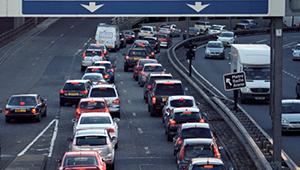Their report, issued today, called on the Department for Transport to draft a common definition of ‘isolated communities’ so central and local government can ensure resources are targeted appropriately.
‘Old and young, unemployed people, those on low incomes and disabled people who live in isolated communities rely on passenger transport. For example, two out of every five jobseekers cite lack of transport as a barrier to finding work,’ said committee chair Louise Ellman.
‘All these groups are disproportionately affected by inadequate or reduced services. It is vital that all ministers recognise the fundamental importance of passenger transport in providing access to education, healthcare and employment.’
The MPs also disputed the DfT’s assertion that volunteer-run community transport schemes could compensate for decreased bus services.
However, they backed the concept of ‘total transport’, which pools existing transport assets to deliver a broad range of services.
Ellman said: ‘If, for example, hospital transport were combined with local bus services, it might revolutionise services for isolated communities.
‘We want to see the DfT test that concept in practice by co-ordinating large-scale pilot schemes.’




















